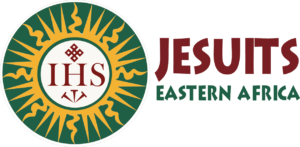1st International Colloquium on the Role of Indigenous Languages for Promoting Cross-Cultural, Linguistic, and Economic Diplomacy in Dar es Salaam, Tanzania
By Ms. Maureen Obare

The proposed Hekima University (pHU) aims to position itself as a research university, towards that ambition, it has entered partnership with other like-minded institutions to spearhead an African-focused research agenda. One such initiative is participating in setting up the African Institute on Indigenous Knowledge elSystems (AIIKS), based at the University of KwaZulu Natal in South Africa. It is for this reason that pHU with other members of AIIKS, Mwalimu Julius Nyerere Professorial Chair in Kiswahili, University of Dar es Salaam, and the Forum for Former Heads of State and Government (African Forum), convened the 1st International Colloquium on the role of indigenous languages for promoting cross-cultural, linguistic and economic diplomacy from 20th to 21st, February 2024 in Dar es Salaam, Tanzania.
The main agenda of this inaugural international colloquium was to advance a paradigm shift in teaching and learning indigenous languages for sustainable futures. The colloquium is based on the consideration that one of the African continental resources, which has not been taken seriously in promoting global social, economic, environmental, and epistemic justice, is the continent’s cultural and linguistic diversity. To highlight the significance of Africa’s cultural and linguistic diversity, the organizers of the colloquium brought together a high-level roundtable of Former African Heads of State and Government, to share their views and experiences on the theme of the colloquium. The proposed Hekima University’s Deputy Director and Director Academic Affairs, Fr. Dr Odomaro Mubangizi, SJ was among the panel of discussants on the theme: The significance of a place-based approach in teaching and learning African indigenous languages using mother/local/national languages.
The main issues discussed during the colloquium covered the following elements:
- There is a growing recognition that African indigenous languages serve not only as modes of communication but also as reservoirs of African indigenous knowledge in science, technology, innovation, social dynamics, politics, spirituality, and economics. These languages can be harnessed for continental and global business, investment, and diplomatic endeavours.
- Africa is witnessing the rapid growth and urbanization of its youthful population, characterized by diverse cultural and linguistic backgrounds. This demographic, coupled with expanding digital and artistic exposure, is gaining enhanced access to knowledge and skills.
This creates an innovative environment conducive for building national, regional, continental, and international business and investment partnerships and opportunities, with both the public and private sectors. Digitalization of African indigenous knowledge systems and languages including oral traditions will enrich global science, technology, and innovation in the 4th Industrial Revolution, through shared global principles of inclusivity, transformation, and partnerships.

The main objective of the international colloquium was to critically determine the prospects and challenges of African indigenous languages in promoting cultural, linguistic, and economic diplomacy. Of crucial importance, the colloquium anticipated is the mobilizing and harnessing of the digital and artistic knowledge and skills of the youth, from across cultures, regions, gender, spiritual, and linguistic backgrounds, to generate unique digital and artistic products and services. For all this to succeed, the colloquium recommended establishing inclusive platforms involving grassroots practitioners, across social practices (traders, farmers, midwives, faith-based leaders, etc.), who have historically, through informal systems promoted the teaching and learning of diverse indigenous languages and cultures, for sustainable community livelihoods. About 100 delegates from across Africa, Japan, and Germany, comprised of scholars, two former African heads of state, Vice-Chancellors of several universities, community artists, grassroots business leaders, and government officials, graced this historical event.
